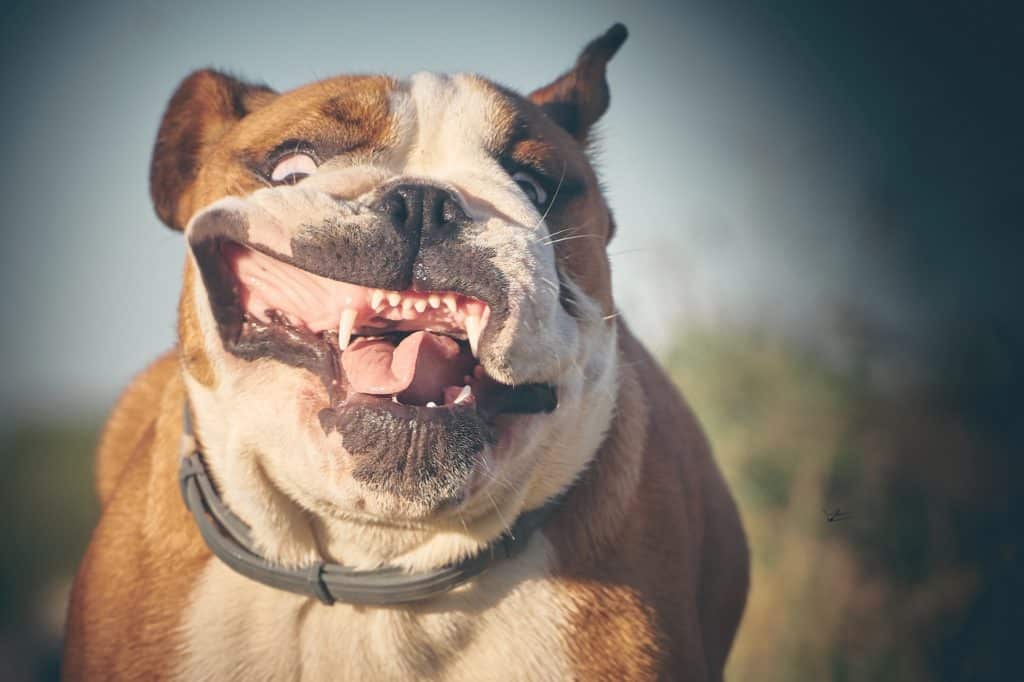French bulldog teeth
Table of Contents
Table of Contents
Bulldogs are beloved pets that are known for their stocky build, wrinkled faces, and droopy jowls. One aspect of their appearance that often goes unnoticed, however, is their teeth. Bulldog teeth are unique in shape and structure, and require special care to maintain their health.
Pain Points
Bulldog teeth can be a source of pain and discomfort for your furry friend. Their short snouts and undershot jaws create a unique bite alignment that can lead to tooth misalignment, overcrowding, and even tooth loss. These issues can cause your bulldog pain when biting or chewing, leading to potential health problems if left untreated.
Target of Bulldog Teeth
The target of bulldog teeth is to effectively chew and break down food for digestion. This can be a challenge for bulldogs due to their unique bite alignment. In order to maintain the health of their teeth and gums, it’s important for bulldog owners to take preventative measures and provide proper dental care for their pets.
Main Points
To ensure the health of your bulldog’s teeth, it’s recommended to brush their teeth regularly, provide them with appropriate chew toys, and schedule regular veterinary check-ups to monitor their dental health. Bulldogs are also prone to gum disease, so it’s important to keep an eye out for any signs of bleeding or inflammation in their gums. In addition, feeding your bulldog a diet that is specifically formulated for their dental health can help reduce the risk of dental issues.
Bulldog Teeth: A Personal Experience
As a bulldog parent, I’ve experienced first-hand the importance of proper dental care for my furry friend. When my bulldog was younger, I noticed that his teeth were not lining up correctly, which made it difficult for him to chew his food. After consulting with my veterinarian, I learned that this was a common issue for bulldogs and could be remedied with proper dental care. I began brushing his teeth regularly and incorporating dental chews into his diet, and over time I noticed a significant improvement in his overall dental health.
 Bulldog Teeth: Tips for Dental Care
Bulldog Teeth: Tips for Dental Care
One of the most important things you can do to maintain your bulldog’s dental health is to brush their teeth regularly. Aim to brush their teeth at least once a day using a toothbrush and toothpaste that is specifically formulated for dogs. In addition, providing your bulldog with appropriate chew toys can help remove buildup and keep their teeth healthy. It’s also important to schedule regular veterinary check-ups to monitor their dental health and catch any potential issues early on. Finally, feeding your bulldog a well-balanced diet that is high in protein and low in carbohydrates can help reduce the risk of dental issues.
 ### Gum Disease in Bulldogs
### Gum Disease in Bulldogs
Bulldogs are prone to gum disease, which can lead to tooth loss and other health issues if left untreated. Signs of gum disease in bulldogs include bleeding or inflamed gums, bad breath, and difficulty eating or chewing. To prevent gum disease, it’s important to brush your bulldog’s teeth regularly, provide them with appropriate dental chews and toys, and schedule regular veterinary check-ups to monitor their dental health.
 #### Diet and Dental Health in Bulldogs
#### Diet and Dental Health in Bulldogs
In addition to proper dental care, feeding your bulldog a diet that is specifically formulated for their dental health can help reduce the risk of dental issues. Look for dog food that is high in protein and low in carbohydrates, as this can help reduce the buildup of plaque and tartar on their teeth. Avoid feeding your bulldog table scraps or human food, as this can be detrimental to their dental health.
 Question and Answer
Question and Answer
Q: How often should I brush my bulldog’s teeth?
A: Aim to brush your bulldog’s teeth at least once a day using a toothbrush and toothpaste that is specifically formulated for dogs.
Q: Can feeding my bulldog a well-balanced diet help prevent dental issues?
A: Yes, feeding your bulldog a diet that is specifically formulated for their dental health can help reduce the risk of dental issues by reducing the buildup of plaque and tartar on their teeth.
Q: What are some signs of gum disease in bulldogs?
A: Signs of gum disease in bulldogs include bleeding or inflamed gums, bad breath, and difficulty eating or chewing.
Q: How can I prevent tooth misalignment in my bulldog?
A: To prevent tooth misalignment in your bulldog, it’s important to provide them with appropriate chew toys, schedule regular veterinary check-ups, and maintain proper dental care.
Conclusion of Bulldog Teeth
Bulldog teeth are unique in shape and structure, and require special care to maintain their health. By brushing your bulldog’s teeth regularly, providing them with appropriate chew toys, and scheduling regular veterinary check-ups, you can help reduce the risk of dental issues and ensure the health of your furry friend. Remember, prevention is key when it comes to maintaining the dental health of your bulldog.
Gallery
How Many Teeth Do English Bulldogs Have? Plus, Dental Health Tips – The Bulldog Blog

Photo Credit by: bing.com / bulldog bulldogs buldog dangerous bave sneezing vet bavent angielski colpo calore ils sonriendo brazil ukpets flatulence gas fera haciendofotos
French Bulldog Teeth

Photo Credit by: bing.com / teeth frenchbulldog frenchie
Chunk E. Meatball–Adorable English Bulldog Puppy: My Bulldog Teeth Are Starting To Show!!
Photo Credit by: bing.com / bulldog teeth english starting adorable chunk meatball puppy
Taking Care Of Your Bulldog’s Teeth - BulldogGuide.com

Photo Credit by: bing.com / teeth bulldog care taking tartar accumulate over so
“Aaarrrrgh”, Tiny French Bulldog Teeth. | Animal Teeth, French Bulldog, Funny Animal Pictures

Photo Credit by: bing.com / bulldogs bulldog frenchie dailyfrenchie





